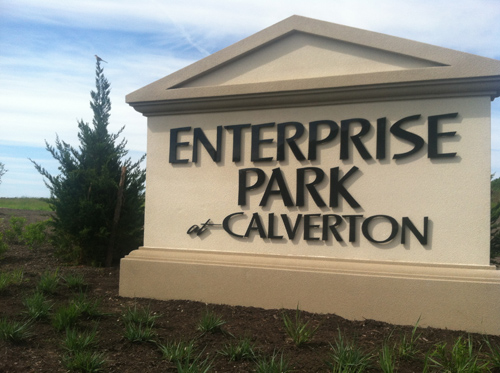Town eyes $6M ‘bridge loan’ to prevent tax increase
The Riverhead Town Board is expected to take the first steps Tuesday toward the preparation of a two-year, $6 million “bridge loan” that’s intended to carry the town over until it begins receiving revenue from the Enterprise Park at Calverton, according to Supervisor Sean Walter.
“This is to prevent the town from having a 16 percent tax increase [next year],” Mr. Walter said.
The town has been staving off a huge tax increase in recent years by applying surplus funds to offset the need for additional taxes. Those surplus funds, much of which came from past land sales at EPCAL, are running out.
Mr. Walter says the town is paying huge annual debt service amounts on the landfill reclamation project and on debt from open space purchases made in anticipation of future revenues from the voter-approved Community Preservation Fund.
The board met with attorney Tom Garry from the firm of Harris Beach to discuss the bridge loan, as well as the idea of having “equity partners” to pay some of the infrastructure costs at EPCAL. Another proposal the town is considering putting in place prior to the development of the 2015 budget is a local law allowing it to pierce the state’s two-percent budget cap if necessary.
The board is expected to vote on a resolution hiring Harris Beach on Tuesday.
“Harris beach is going to be hired for two things,” Mr. Walter said. “One is to work with Suffolk County National Bank to obtain a Community Development Association bridge loan or line of credit, which would be used to help the town balance its general fund budget or perhaps be used to help finance infrastruture at EPCAL. The number one issue would be putting us in a position where we don’t have to raise the taxes 16 percent next year.”
The $6 million is expected to be enough to get the town through the next two years, Mr. Walter said. In recent years, the town has used about $3 million per year in surplus funds to offset taxes in the budget.
“The second thing we’re hiring them for is to see if they can help us formulate a proposal that might bring somebody in as an equity partner,” Mr. Walter said. The “equity partner” would potentially help the town pay the costs of sewer and infrastructure improvements at EPCAL, a price tag that is expected to exceed $22 million.
In exchange, the equity partner, which could be a private company, would get a “seat at the table,” Mr. Walter said. What that means, he doesn’t know, he said, because it would depend on what the equity partner asks for.
The town is in the process of subdividing its land at EPCAL into 50 industrial lots, and then selling them, or perhaps leasing them.
Councilman John Dunleavy said the town is at a disadvantage in trying to sell land at EPCAL because it is required to make potential sellers show that they have the finances and the ability to carry out whatever project they propose to buy land for at EPCAL, where private land owners don’t face that obstacle.
The town is potentially competing against Jan Burman, a private developer who owns industrial land at EPCAL, which he purchased from the town, officials said.
Mr. Walter said he is receiving unofficial offers — since the town can’t sell land before the subdivision is complete — in the range of $150,000 per acre for land at EPCAL.
“My guess is, if the town holds out, you will see us make more money that we would have made in the Rechler Equity Partners and Riverhead Resorts deals,” Mr. Walter said, alluding to two land deals his predecessor, Phil Cardinale was working on at EPCAL.
Rechler sought to buy 300 acres for $17 million and Riverhead Resorts sought to buy 750 acres for $155 million. Both of those deals fell apart shortly after Mr. Walter took office, as Rechler insisted on building houses on the land and Riverhead Resorts hadn’t paid money it owed the town in its contract.
Another option that could make the bridge loan unnecessary would be if a proposal to build an energy park at EPCAL takes off, Mr. Walter said.
The town has already issued requests for proposals for solar plants and for energy “peak” plants on a 90-acre stretch of land just south of the unused 7,000 foot runoff at EPCAL. The town should know by the end of March where LIPA is interested in pursuing such projects at EPCAL. The Town Board is expected to issue another request for proposals on Tuesday for companies looking to do hydro cell storage at EPCAL.
“If successful, the peak plant alone could bring in $2 million a year in revenue,” Mr. Walter said. The peak plants produce energy only during peak energy usage times, in the summer.









